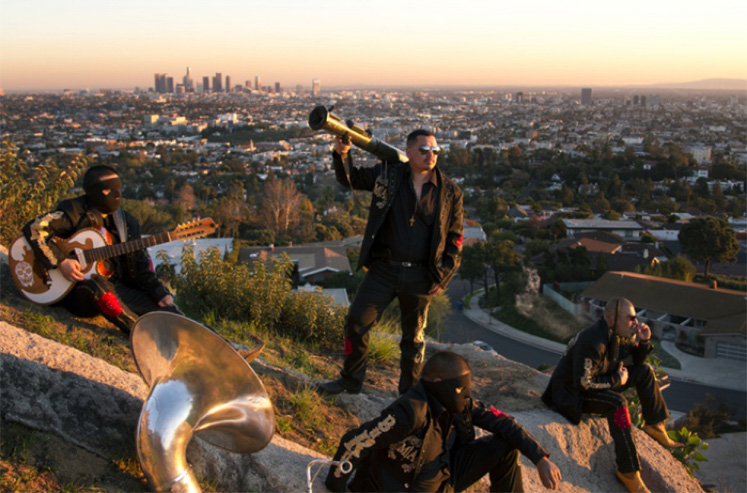Shaul Schwarz’s documentary Narco Cultura opens with a series of grizzly shots of dead bodies, just a handful of the thousands of people gunned down (or tortured, burnt, decapitated, and murdered in all sorts of brutal fashion) in the Mexican city of Juarez each year. We never get too far from these powerful images. They are, after all, the baseline of the filmmaker’s subject: the war waged in the minds of Mexicans and Mexican-Americans over the idea of cartel life. For the police officers and crime scene investigators we meet, the bodies represent an unending stream of morbid work. This is what has destroyed their city, and it is the fate they know they risk by doing the jobs they do. For the singers of narcocorrido, the genre of Latino music that glorifies the outlaw life of the cartels, the bodies are fodder for lyrics, machismo songs that are making them stars and money by glorifying human butchers for a rapidly popularizing musical subculture.
The most unsettling aspects of Narco Cultura, however, aren’t the raw depictions of death. Rather, they are scenes north of the border, of young Mexicans who, living far from the day to day reality of the tyranny of the cartels, talk about their admiration for these modern day “robin hoods” and sing along to songs about decapitations, gun fights, and trafficking. Or people like the cocky lead singer and songwriter for the group Buknas de Culiacan, a man who had never been to Mexico before he began singing about AK-47s, carrying a bazooka on stage, and selling songs to Los Angeles drug dealers that glorify their lives. He comes across as man more than clueless; he is a dangerous fool.
The obvious musical parallel to this genre is gangster rap, and you can imagine the flurry of popular outrage if the genre gains any more popularity (or if our Tipper Gore types understood Spanish). But Narco Cultura resists making a simplistic critique of the negative influence of pop culture. Instead, the filmmaker follows a handful of characters on both sides of the border and the drug wars (and to Schwarz’s credit as documentarian, risking his own skin to do so) in order to draw out a deeper and more profound cultural reality. The border is more than a physical barrier, it represents a zone of translation, through which Mexico’s sufferings become America’s dreams. In one of the film’s most moving scenes, a mother whose son has been decapitated and dismembered by the cartel wails for a camera. “Why is Juarez not shouting? Why is Juarez not shouting?” It is a grim plea that Schwarz takes up with his film. Singing about narco cultura is its own kind of silence.





